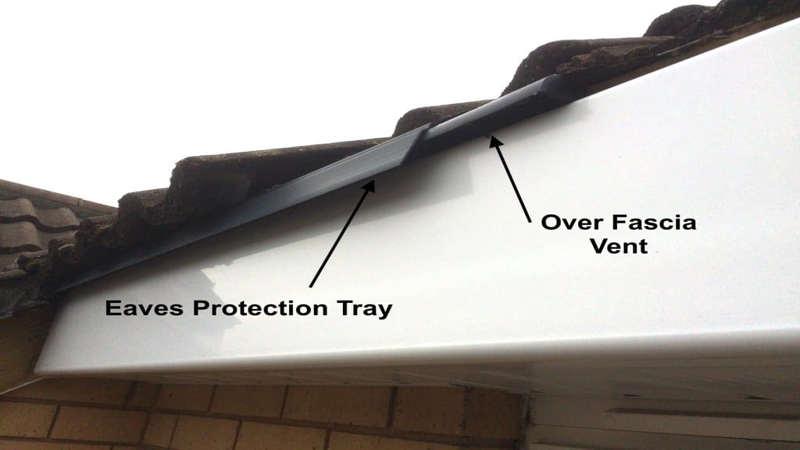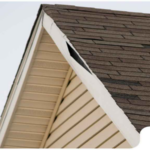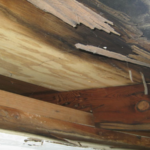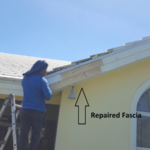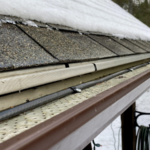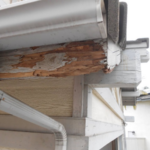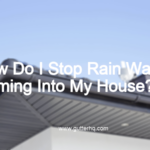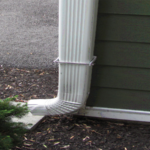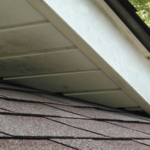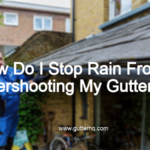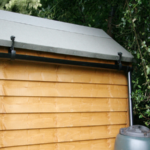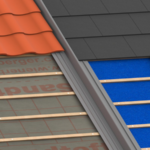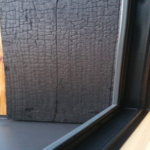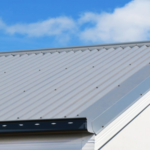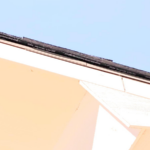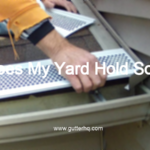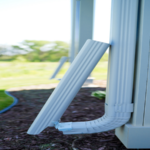There are a few things you can do to stop rainwater from pooling in your yard. One is to make sure that your gutters and downspouts are clear and free of debris. This will allow the water to flow freely away from your home. Another is to grade your yard so that it slopes away from your house. This will help the water to drain away from your foundation. Finally, you can install a French drain. This is a drain that is installed underground and helps to collect and redirect water away from your home.
Why is there standing water in my yard after heavy rain?
- Poor Drainage: If your yard does not have proper drainage, water will pool in certain areas after a heavy rain. This is especially common if you have a lot of trees or other plants in your yard, as their roots can block drainage systems.
- Leaking Pipes: Another possible reason for standing water in your yard is leaking pipes. If there are any cracks or holes in your home’s pipes, water can escape and pool in your yard. This is particularly common in older homes with outdated plumbing.
- Low-lying Areas: If your yard has any low-lying areas, they will likely fill with water after a heavy rain. This is because water flows downhill, so it will collect in any depressions in your yard.
- Clogged Gutters: One final possible reason for standing water in your yard is clogged gutters. If your gutters are full of leaves and other debris, they can’t properly drain water away from your home. As a result, water will pool in your yard instead.
How do I get rid of ponding in my yard?
If you have ponding in your yard, there are a few things you can do to get rid of it. First, you need to find out where the water is coming from. If it is coming from a nearby river or stream, you may be able to build a dam to block the water. If the pond is caused by rainfall, you can try to redirect the runoff by installing gutters and downspouts. You can also try to improve the drainage in your yard by adding soil or mulch to help absorb the water. If the pond is small, you may be able to simply drain it. However, if the pond is large or if it is connected to a groundwater source, you will need to consult with a professional before taking any action.
How do I stop water from seeping in my yard?
- If water is seeping in your yard, it is likely due to poor drainage. To improve drainage, you can install a drainage system or improve the existing one.
- You can also take measures to prevent water from seeping in by waterproofing your basement or crawlspace and by grading your yard so that it slopes away from your house.
- In addition, you can plant trees and shrubs that will help absorb water and prevent it from pooling in your yard.
- Finally, you can also try using a dehumidifier to reduce the amount of moisture in the air, which will help to prevent water from seeping in.
How do I get my yard to absorb water?
- Water your lawn deeply and slowly. It’s best to do this in the morning so the water has all day to soak in.
- Avoid frequent, shallow watering. This only encourages shallow root growth and makes your lawn more susceptible to drought.
- Aerate your lawn. This helps to improve drainage and allows water to penetrate the soil more easily.
- Add organic matter to your soil. This helps to improve its ability to hold water.
- Make sure your gutters and downspouts are clean and free of debris. This will help to ensure that rainwater is directed away from your foundation and into your yard.
What ground cover soaks up water?
There are many ground covers that can soak up water, but one of the best is the common lawn grass. Lawn grass has a deep root system that can quickly absorb large amounts of water. Additionally, the blades of grass help to hold the water in place so that it can seep down into the soil.
How do you dry up a wet yard fast?
There are a few things you can do to dry up a wet yard fast. One is to simply let the sun and wind do their work. If you have the time, you can also use a leaf blower or a garden hose to help dry things up. Another option is to use a product like Quick Dry to help absorb the water and speed up the drying process.
Why is there a constant wet spot in my yard?
There are a few reasons that could be causing a wet spot in your yard. One possibility is that there is a leak in one of your underground water lines. Another possibility is that there is a problem with your septic tank or leach field. If you have a well, it could be that your well pump is not working properly.
If you have a lawn, the wet spot could be caused by a sprinkler head that is not working correctly. Sprinkler heads can become clogged with dirt and debris over time, which can cause them to put out less water than they should. Another possibility is that the sprinkler heads are not properly adjusted and are spraying water onto your yard instead of onto your lawn.
If you have a garden, the wet spot could be caused by a leak in your irrigation system. Irrigation systems can develop leaks over time, which can cause water to seep into the ground and create a wet spot. Another possibility is that your garden is located in an area that has poor drainage. Poor drainage can cause water to pool in an area, which can create a wet spot.
Last Word
There are a few things you can do to stop rain water from pooling in your yard. One is to make sure that your gutters are clean and clear so that they can properly drain water away from your home. Another is to grade your yard so that it slopes away from your house, which will help water drain away from your foundation. Finally, you can install a French drain, which is a type of drainage system that can help collect and redirect water away from your home.
